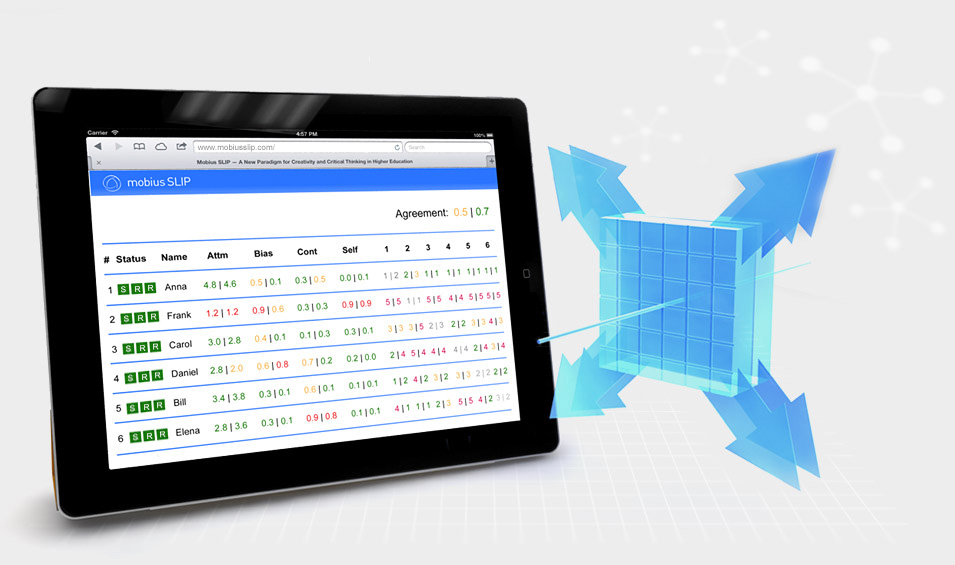
Mobius SLIP Transforms Complex Data
Into Informative Presentation
Mobius SLIP tracks students’ progress over the course of several assignments and delivers informative learning analytics to both instructors and students.
Instructor can monitor students’ activity in real time and, based on learning analytics, offer students targeted and specific guidance.
Results presented to students increase their self-awareness and self-efficacy. Students are motivated and guided on how to capitalize on their strengths and to eliminate their weaknesses in the future assignments.
In each assignment, a student is evaluated as both an author (creator) and a reviewer (critic) along several diagnostic dimensions — attainment, bias, controversy and self-assessment accuracy. In addition, the system indicates the reliability of these measures, based on the implicit consensus among peers. Mobius SLIP does not “give” any grades. The scoring outcome is dependent entirely on the review process. Peer Grade suggested by the system only indicates what the grade may have been if (and only if) the peer review and evaluation results were adequate and reliable. If there is a flaw in Peer Grade, it has its origin in the student peer review group interaction. In addition to the review-based scoring results (which combines peer evaluation, self-evaluation and instructor’s grading settings), Mobius SLIP also shows where scoring might be biased or unreliable, by indicating excessive bias or controversy, as well as peer groups with weak group-level agreement (implicit consensus). It also factors in instructor’s expectations of the overall strength of work of the top performers. The results are presented as color-coded summative scores together with their interpretation and formative feedback. Instructors can override Peer Grades suggested by the system that at any time.
While idiosyncratic discrepancies between a grade the instructor would give and the Peer Grade indicated by Mobius SLIP may occur in each individual assignment, our research demonstrates that over multiple assignments, the distribution of students’ competency evaluations (i.e., cumulative percentiles and grades) is very likely to be identical to the distribution produced by the instructor grading.
The analytical components of Mobius SLIP — Double-Loop Mutual Assessment (DLMA) — is an advanced patent-pending algorithm based on the straight-forward three-step workflow and the psychological, sociological, educational and economic theories, combinatorics and statistics (Babik, D. & Ford, E. Methods and Systems for Educational Online Methods, PCT/US2013/40982).


